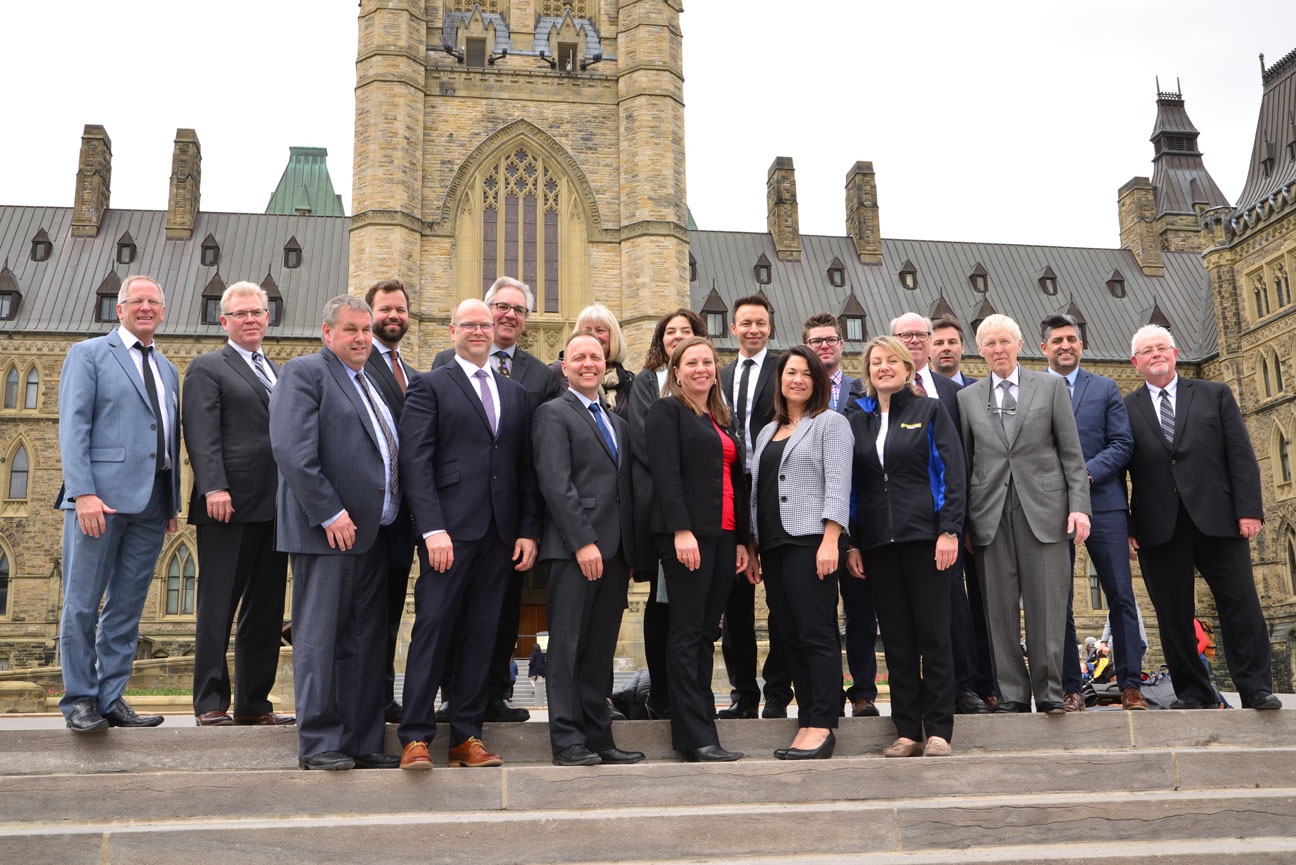NMMA Canada lobbies federal parliamentarians

Representatives from the Canadian recreational boating industry gathered in the national capital last week as part of NMMA Canada’s 5th annual Recreational Boating government advocacy initiative.
The “Day On The Hill” event – named in reference to the Canadian parliament’s location atop a hill in downtown Ottawa – saw teams of industry stakeholders including NMMA Canada members, representatives from boat, engine and parts and accessories manufacturers, and representatives from regional marine trade organisations across the country meet with a number of MPs and senior political and departmental staff in order to highlight issues concerning the Canadian boating industry, including access to water, abandoned and derelict vessels, looming E15 fuel regulations and barriers to trade. Discussions concerning trade centred on potential changes to the North American Free Trade Agreement, potential trade agreements with a post-Brexit UK, as well as a potential replacement for the scuttled Trans-Pacific Partnership.
The group took advantage of the event to educate parliamentarians on the growing economic value of the country’s boating industry, as outlined in a newly released study titled The Economic Impact of Recreational Boating in Canada: 2016. The study, conducted by Hickling Arthurs Low on behalf of NMMA Canada and in cooperation with Discover Boating Canada and regional marine trade associations, shows the industry as generating revenues estimated at C$10 billion in 2016, which generated $5.6 billion in direct GDP and supported nearly 75,000 jobs nation-wide. The numbers represent a near 12 percent growth rate over the previous economic impact study conducted in 2011.
“The Day On The Hill initiative is an important element in NMMA Canada’s overall advocacy efforts on behalf of the Canadian recreational boating industry,” said executive director Sara Anghel. “The opportunity for members to discuss important issues directly with parliamentarians and key policymakers is critically important not only for the industry, but for the regulators themselves, who deal with complex issues involving multiple stakeholder groups. Our advocacy efforts ensure that the boating industry is part of relevant discussions concerning trade or regulatory issues, and that our members have a voice in Ottawa.”




